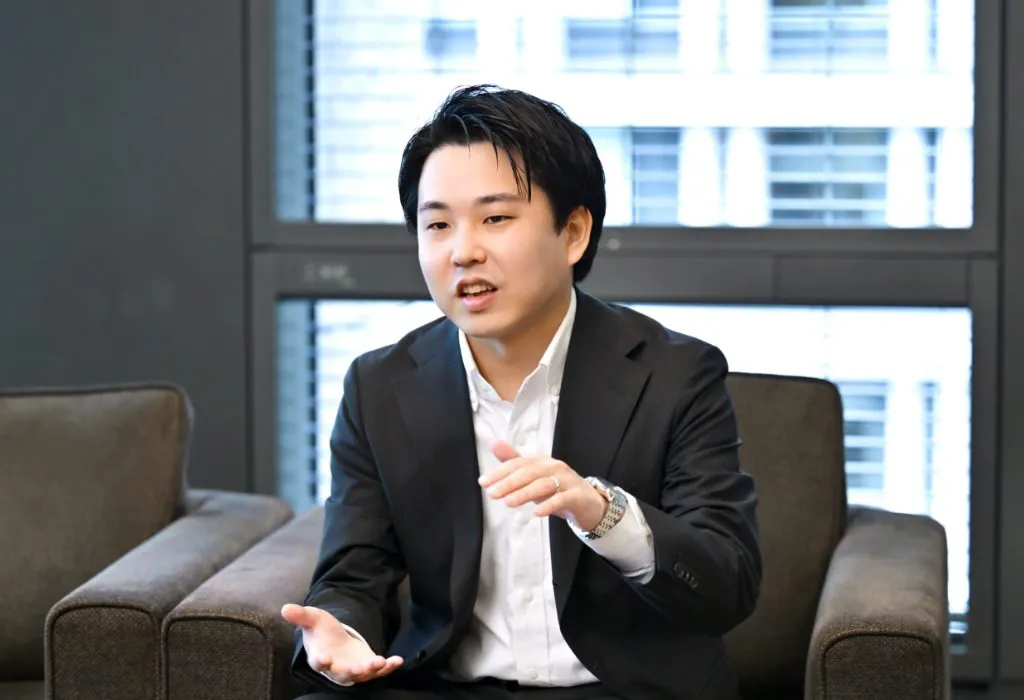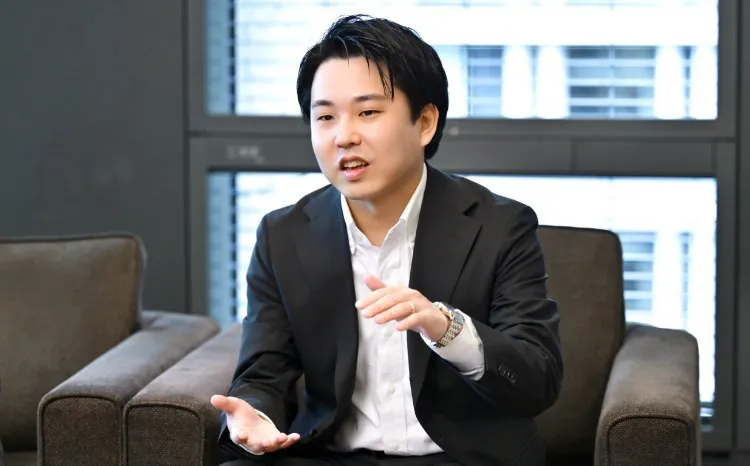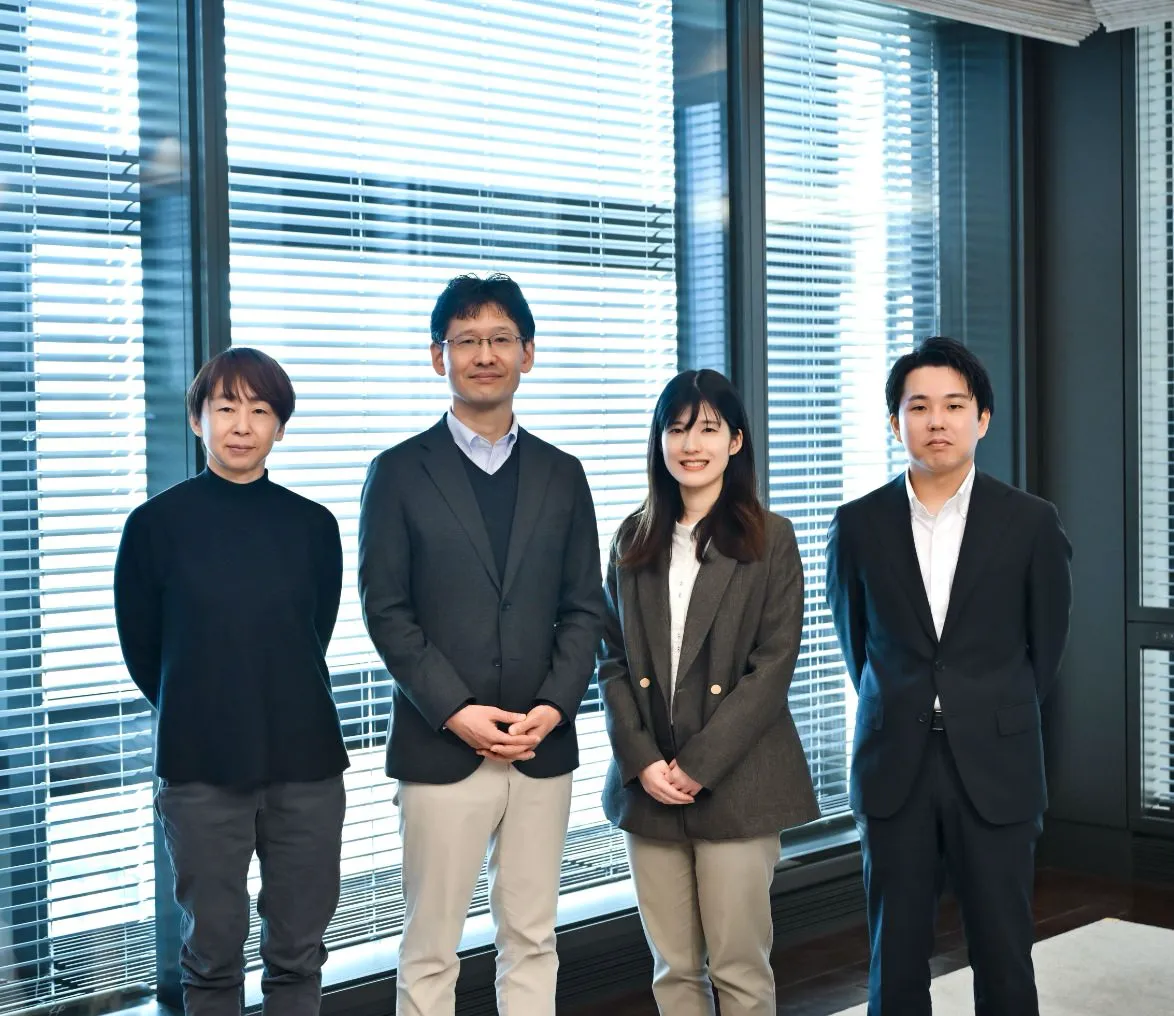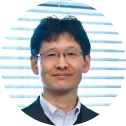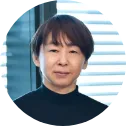In July 2024, Sumitomo Mitsui Financial Group Inc. (SMBC Group) and The Japan Research Institute Ltd., in collaboration with Kyoto University, established the SMBC Kyoto University Studio on the university campus. This studio serves as a platform for addressing various social issues through open dialogue among Kyoto University, SMBC Group, citizens, businesses, and government entities. Its concept aligns with Kyoto University’s vision of “harmonious coexistence within the human and ecological community on this planet” and SMBC Group’s goal of “Fulfilled Growth,” (where people feel fulfilled as economic growth accompanies the resolution of social issues) , and serves as a hub for innovation and social impact.
The studio launches projects for each social issue, focusing on research, business creation, and talent development. Specifically, it collaborates with Kyoto University researchers and Japan Research Institute staff to conduct research, translate findings into practical solutions, and implement them in society.
Yosuke Kimura, from Sumitomo Mitsui Banking Corporation, Inc.’s Sustainability Development Dept., and currently seconded to Kyoto University’s Institutional Advancement and Communications, emphasizes the studio’s uniqueness. “SMBC Group will invest ¥1.5 billion over 10 years to advance research on social issues through collaboration with academia. This goes beyond traditional industry-academia partnerships and represents a serious commitment from SMBC Group.”
Challenges of “life
planning in old age” in an
Aging Society
One of the social issues studied at the studio is “life planning in old age” in the final stage of life. In Japan, as the population ages and the number of elderly people living alone increases, more individuals face challenges in end-of-life decision-making. To address this, the studio has set up a project on “Dignified End of Life for All: Building a sustainable support system for life planning in old age”
Decision-making in the final stage of life involves various issues, including housing arrangements, care decisions, and asset management. Satoshi Kodama, a professor at Kyoto University’s Graduate School of Letters specializing in end-of-life medical ethics and project lead, highlights the complexity of these decisions. “Personal values and the reliability of service providers are deeply intertwined when it comes to end-of-life decisions. For example, there is currently no system to ensure that pre-arranged end-of-life services are carried out as intended. Also, conversations about end-of-life matters are often difficult, making it challenging to understand individuals’ true intentions.”

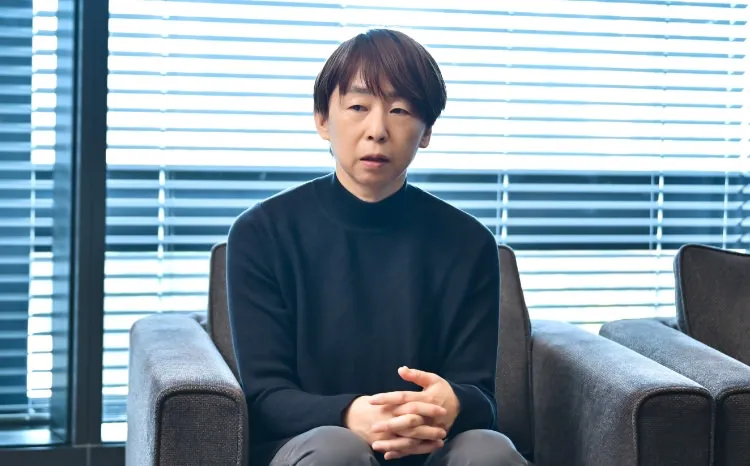
Kanae Sawamura, a project lead from the Japan Research Institute’s Center for the Strategy of Emergence, notes, “In addition to the burden of making end-of-life decisions alone, many people face the challenge to find someone they can completely trust to make decision for them.”
Professor Kodama emphasizes the importance of corporate involvement in addressing these issues. “This project cannot be solved by academia alone; corporate participation is essential. Partnering with SMBC Group, which holds significant influence in the business sector, helps integration of our research with society. In addition, the direct support from SMBC Group through personnel seconded to the university demonstrates their strong dedication.”
Visualizing Diverse
Values as a Step Toward
Support Systems
This project seeks to visualize our values on end-of-life planning through dialogue with various stakeholders and use these insights to develop support systems. Sawamura notes, “Discussions with citizens have revealed a coexistence of two perspectives: the desire to avoid burdening family members while simultaneously wanting to entrust important matters to loved ones.”
Collecting a range of perspectives and incorporating them into a structured decision-making support system is one of the project’s key objectives.
The project also seeks to gather and verbalize societal perspectives on life and death through collaboration between citizens, academia, and businesses, fostering broader social discussion.
Risako Tada, from The Japan Research Institute, Ltd., Center for the Strategy of Emergence and currently seconded to Kyoto University’s Institutional Advancement and Communications, explains, “Discussions about death tend to be considered socially taboo, but they are important topics that should be addressed. By verbalizing and gathering diverse perspectives through dialogue and sharing them widely, we hope to create a movement of discussions.”
Financial matters are an essential part of discussions on end-of-life planning and decision-making. Kimura explains, “Many elderly individuals face difficulties managing their finances and making financial decisions due to cognitive decline. Supporting them in these situations is a key role for financial institutions. Furthermore, protecting their assets is a critical responsibility for financial institutions, especially with financial fraud targeting the elderly on the rise.”


Creating New Forms of
Mutual Support to
Shape Japan’s Future
Regarding the project’s future direction, Sawamura states, “Our first step is to clearly verbalize existing issues and values, making them visually recognizable. Through this process, we ultimately seek to develop a structured system for decision-making support.”
Professor Kodama highlights the importance of mutual support, adding, “The saying ‘self-help, mutual assistance, and public support’ is well-known, but ‘mutual support’ has been declining in recent years. It plays a crucial role in shaping a new society. Through this project, we hope to explore and establish new forms of mutual support, creating social value in the process.”
Tada, who oversees the studio’s overall operations, outlines its direction. “We are considering how to connect the insights gained from our projects with society. The studio will focus on selecting themes with social value and make sure they are put into action.”
Kimura concludes, “I see my role as bridging academia and industry by bringing research-driven ideas into real-world applications. As opportunities for dialogue and collaboration with SMBC Group and the public increase, I hope to amplify the impact of these research findings in society.”
